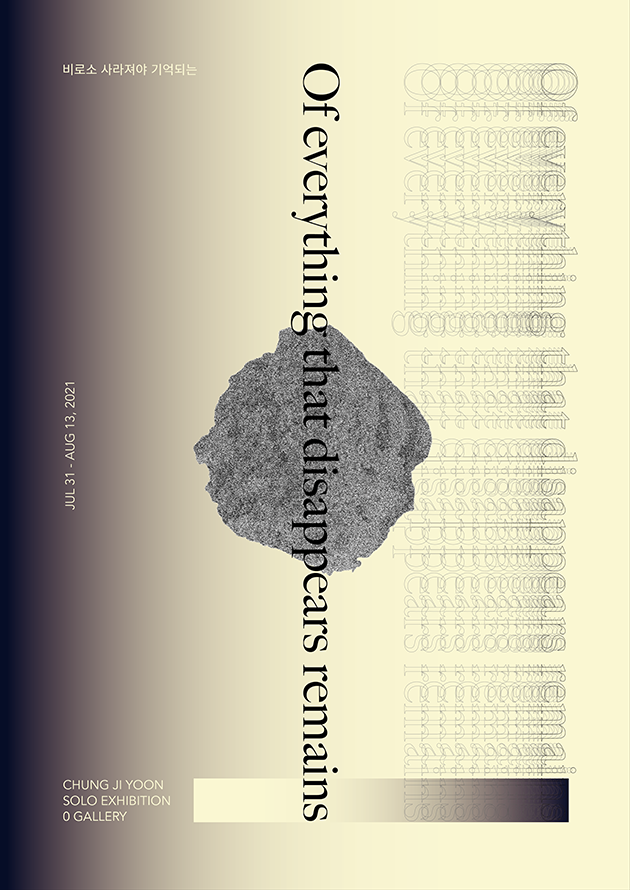
Exhibition Information
Will a memory created today be remembered tomorrow? The sky we gazed at as we travelled to work; the signboards we passed while walking; the people we met on the subway; and the savory smell emanating from the bakery. Even if we remember all of these things, will they present themselves as memories that we want to remember tomorrow? We do not remember what we experience exactly as they take place on a daily basis. Precisely speaking, even if we do remember everything, we tend to forget as much as we remember. Even though humans are known to be the creatures of oblivion, we cannot consciously experience oblivion simply because forgotten memories can never be remembered. Nevertheless, if we come to notice that our memories are gradually fading away or disappearing, it paradoxically means that we have been reminiscing ‘that memory’. It is only when we reminisce on a constant basis, are we then able to feel the memory fading away. We encounter oblivion as much as we reminisce. In this exhibition <Being remembered only after being lost - Of everything that disappears still remains> memories are rather reproduced continuously as a data. However, the more we reproduce them, and the more we try to preserve them physically, the more our memories die out. Perhaps no memories already exist in the exhibition hall. What we witness are merely the things that memories gave birth to, or the creation achieved by memories. In this exhibition, Ji Yoon Chung stands between the attitude to preserve memories and their tendency to disappear, while constantly organizing and arranging them. She accomplishes this calmly as if she is simply sorting through some books stacked on old bookshelves. However, the process by no means involves any indifference or negligence. This is because Ji Yoon Chung's attitude towards reproduction and repetition embodied in her work <Relocation> featuring the lumps that appear to be the same but are actually different, and again, a series of procedures that quantify them and arrange them into data, exude a sense of desperation for something abstract. We experience today as much as flowing memories. And the importance lies in today, where all those memories begin. Ji Yoon Chung narrates stories that emanate from memories while never once omitting the present perspective that looks at changing things. We shall strive to remember that today can be the memory we reach for tomorrow as much as we reminisce for the past.
